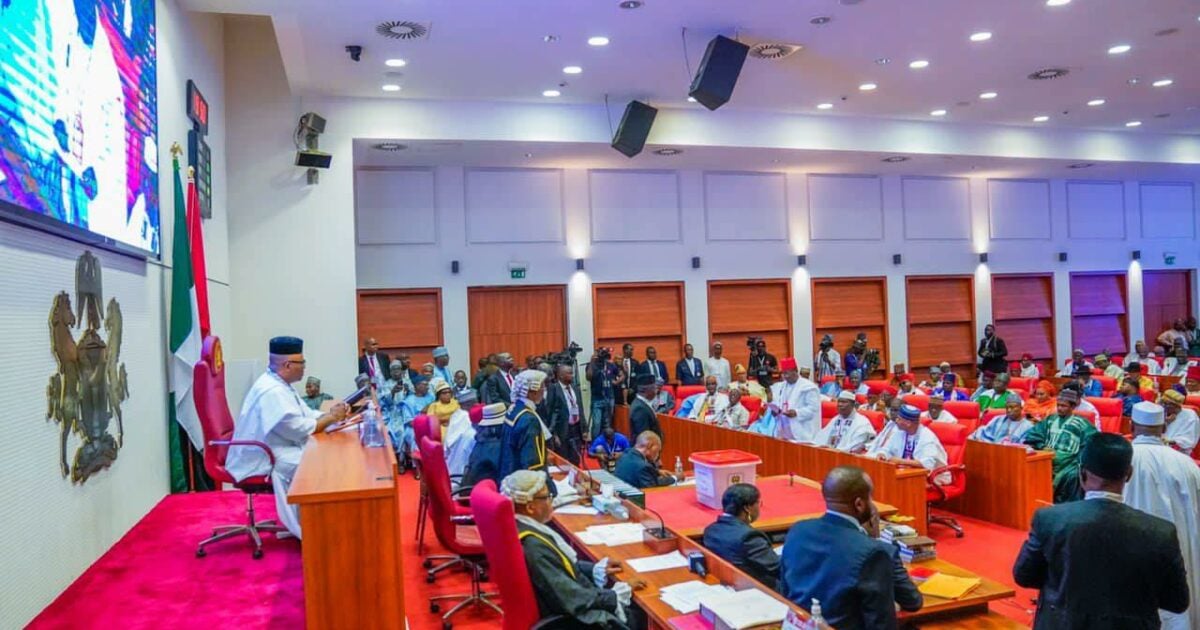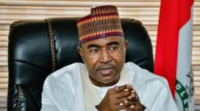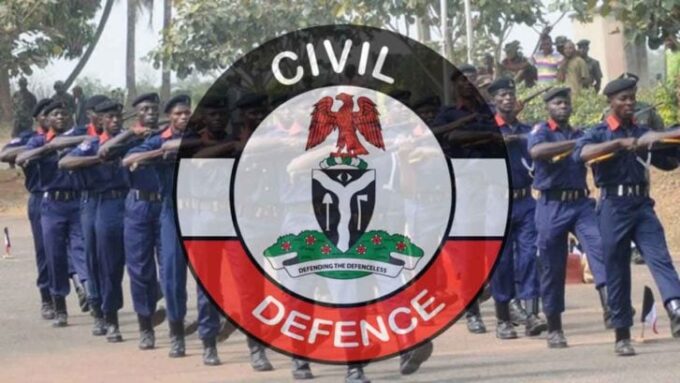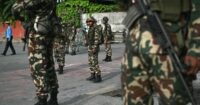
The Senate on Wednesday took a firm stance against the country’s worsening insecurity, declaring kidnapping a form of terrorism and recommending the death penalty for offenders, without the option of fines or judicial discretion to reduce sentences.
The resolution followed hours of tense debate triggered by the November 18 attack on Christ Apostolic Church, Eruku, in Ekiti Local Government Area of Kwara State, where gunmen killed two worshippers and abducted 38 others.
Although all victims were later rescued in joint operations involving the army, police, DSS agents, and local vigilantes, lawmakers said the incident exposed the alarming southward drift of insurgent cells and the collapse of security in rural communities.
The decisions stemmed from a motion by Senator Yisa Ashiru (Kwara South) titled “Urgent Need to Address Escalating Insecurity in Kwara, Kebbi, and Niger States and Strengthen National Security Frameworks,” which opened a floodgate of concerns over attacks on schools, worship centres, highways, and entire communities.
Senators noted that the frequency of school abductions had forced the shutdown of all schools in local governments across Kebbi and Niger states, five LGAs in Kwara, and all 47 Federal Unity Colleges nationwide.
Senator Issa Jibrin (Kogi East) decried the country’s critical manpower deficit in security services, warning that Nigeria’s entire military, police, and paramilitary personnel “do not total one million,” compared to Egypt’s 1.5 million.
He pushed for urgent equipment upgrades, better intelligence coordination, and a reserve force to support overstretched troops.
Other senators raised concerns that banditry was creeping closer to Osun through Ekiti-linked communities around Eruku–Isapa–Koro — areas where a retired Army General and a traditional ruler were recently killed.
Lawmakers also blamed attacks on bad roads that enable criminals to escape easily, directing the Federal Ministry of Works to immediately begin reconstruction of the Idofian–Omu-Aran–Eruku–Egbe–Kabba corridor.
Amid rising brutality and ransom-driven networks, senators resolved that kidnapping had evolved into full-fledged terrorism and must attract the severest punishment. “Capital punishment must apply,” several lawmakers argued, insisting that no judge should have the power to reduce the sentence for convicted kidnappers.
The Senate further urged President Bola Tinubu to “further rejig the nation’s security architecture,” a call that prompted Senator Ali Ndume to warn that such language could be misread, given the recent confirmation of service chiefs.
The chamber, however, clarified that its demand focused on improving coordination, technology, intelligence, and rapid deployment.
In a rare show of institutional self-critique, the Senate dissolved its Committee on National Security and Intelligence and its Committee on Air Force with immediate effect, directing all other security-related committees to submit written oversight reports and brief the chamber behind closed doors within one week.
Lawmakers also moved to strengthen registered vigilante groups with federal support and ordered a review of the firearms law to permit controlled arming of responsible citizens.
Wednesday’s decisions followed a rowdy plenary that saw senators openly clash over the escalating wave of kidnappings and mass attacks across several states.
Earlier, the chamber had adopted a separate motion by Senator Asiru Yisa (Kwara South) commending President Tinubu and security agencies for the rescue of dozens abducted in Kwara and Niger.
The motion also called for the creation of a Joint Task Force for the Kwara–Kogi corridor, a notorious escape route for bandits.
The confrontation intensified as lawmakers discussed the abduction of schoolchildren in Kebbi, mass kidnappings in Niger, and the Eruku church attack. Ashiru told colleagues the chamber was “deeply disturbed” by the raid on the CAC church and raised concerns over credible reports that soldiers withdrew from the Kebbi school hours before bandits struck.
Deputy Senate President Barau Jibrin argued that Nigeria must widen its search for solutions.
“We should seek assistance from overseas, urging collaboration with global partners to stem the crisis,” he said.
Senate Leader Opeyemi Bamidele described the current threats as defining.
While acknowledging the rescue of victims, he queried why security agencies had given no breakdown of terrorists neutralised.
He also warned colleagues against grandstanding and urged internal reforms.
“If we are calling on the President to rejig the security architecture, we must also look into our own arrangement. I am not impressed with our Committee on Security and Intelligence. We should rejig it ourselves,” he stated.
Senator Enyinnaya Abaribe pushed back against attempts to blame previous administrations, insisting that the current government must accept responsibility.
He cited reports of troop withdrawal before the Kebbi school attack, saying, “Who asked them? Nobody knows. If I were the Commander-in-Chief, I would demand answers.”
Senate President Godswill Akpabio raised concerns over intelligence compromises, recalling incidents in which the location of a brigadier general killed in Borno was allegedly leaked.
He said it was troubling that bandits could still strike despite warnings issued to schools in Kebbi.
Tempers flared when Senator Seriake Dickson warned that Nigeria was “losing prestige and integrity,” accusing the majority caucus of massaging the issues.
The comment triggered protests from APC senators, forcing Akpabio to mute his microphone.
Senator Adams Oshiomhole later rose to defend President Tinubu and demanded an investigation into the troop withdrawal.
“Who ordered the military to withdraw? That person should be tried for terrorism,” he said — a call the Senate adopted. He also questioned sentencing inconsistencies in terrorism cases before renewing the push for the death penalty for kidnappers.

















Leave a comment